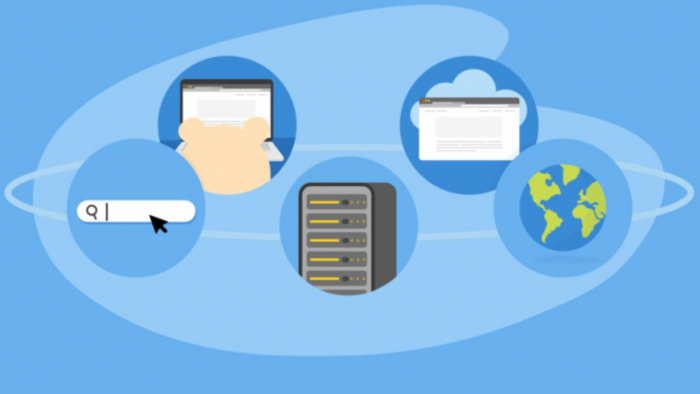Technology isn't just running in the background of banking and financial services anymore—it's driving the entire show. When companies grow today, they're not just buying better spreadsheets or hiring more accountants. They're plugging into automation platforms, machine learning models, and cloud-native financial APIs that make their money move as fast as their code.
In this article, we'll dive into the technology stack powering modern fintech platforms. We'll look at how APIs, artificial intelligence, and automation frameworks are completely reshaping enterprise finance. And here's something interesting: when you're ready to choose a business credit card, you should be looking at the technology behind it, not just the fees.
The API-First Revolution in Finance

For decades, finance systems were like isolated islands—separate databases with CSV exports and manual reconciliation as the only bridges between them. The explosion of API-first fintech platforms has torn down those old walls.
Instant integrations: Companies can now sync transaction data immediately with major systems like NetSuite or QuickBooks.
Programmable money: Developers can create new accounts, issue cards, and set budgets directly through code.
Data portability: APIs let organizations embed financial tools right into their own dashboards and applications.
This mirrors what happened with Stripe in payments and Plaid in banking connectivity. Finance has evolved from a closed system into a programmable layer that fits seamlessly into enterprise technology stacks.
Intelligent Automation: AI as Your New CFO Assistant
Artificial intelligence has become the behind-the-scenes powerhouse driving finance automation forward.
Expense Categorization Models
Natural language processing systems analyze merchant descriptions, receipts, and spending history to automatically classify expenses. These platforms now achieve over 90% accuracy in enterprise environments.
Anomaly Detection
Machine learning models instantly flag transactions that don't match historical patterns. Instead of waiting for monthly audits, AI spots potential risks the moment they happen.
Real-Time Policy Enforcement
Traditional finance departments approve spending after expense reports get submitted. AI-powered fintech platforms can block non-compliant purchases right at the transaction level.
Predictive Cash Flow Forecasting
Advanced algorithms analyze seasonal trends, burn rates, and vendor payment patterns to predict cash needs weeks ahead of time.
By building AI directly into transaction systems, fintech platforms eliminate the delays that used to define corporate finance.
Cloud-Native Infrastructure Built for Scale
Legacy finance platforms were stuck on-premise. Today's fintech solutions are born in the cloud.
Elastic Scaling: Platforms automatically adjust computing resources to handle everything from a few transactions to millions.
High Availability: Distributed systems maintain uptime above 99.99%, keeping your finance operations running smoothly.
Serverless Event Processing: Real-time transaction events instantly trigger compliance checks and accounting updates.
This shift means businesses aren't just using finance tools—they're tapping into resilient cloud infrastructure that grows with their success.
Security and Compliance at the Foundation
In finance, a security breach can be a company-ending event. The best fintech platforms employ multiple layers of protection:
Tokenization: Credit card and payment details get converted into secure, non-sensitive tokens.
Zero-Trust Architecture: Every API call and user session gets continuously verified.
SOC 2 + PCI DSS Compliance: Regulatory compliance isn't a one-time checkbox—it's an ongoing, automated monitoring process.
AI-Enhanced Fraud Detection: Machine learning models identify new attack patterns faster than traditional rule-based systems ever could.
As cyber threats evolve, fintech platforms continue investing heavily in both infrastructure security and regulatory compliance.
Real-Time Data: Finance Becomes a Living Dashboard
Financial data used to live in quarterly reports. Now it streams live, 24/7.
Customizable Dashboards display spending by vendor, project, or department in real time.
Drill-Down Analytics let CFOs trace unusual patterns directly back to individual transactions.
Predictive Insights use machine learning to show not just what happened, but what's likely to happen next.
When executives log in today, they don't see static balance sheets—they see a dynamic, real-time view of their company's financial health.
Real-World Success Stories
AI-Powered Fraud Prevention in Retail
A Fortune 500 retailer cut fraudulent transactions by 42% after implementing machine learning models trained on vendor behavior patterns.
Automated Reconciliation for SaaS Companies
A 200-person SaaS company integrated their payment systems with an API-driven fintech platform, reducing reconciliation time from days to minutes.
Cloud Scaling for E-Commerce
An e-commerce company processed over 50 million virtual card transactions using cloud-native infrastructure—with zero downtime.
These examples prove that fintech innovation isn't about prettier plastic cards. It's about the intelligent technology running underneath.
Looking Ahead: Autonomous Finance
We're moving toward autonomous finance, where financial decisions execute themselves:
- AI adjusts budgets dynamically based on spending patterns
- APIs trigger payments automatically when project milestones are reached
- Blockchain ledgers verify compliance without human oversight
In this future, comparing business credit cards means evaluating the artificial intelligence and automation built into them, not just their annual fees or reward programs.
The Bottom Line: Finance Becomes Software
Modern fintech isn't really about cards or bank accounts anymore—it's about the software intelligence layered underneath everything. When companies modernize their finance operations, they're not just switching banks. They're embedding APIs, AI, and automation engines into their core business workflows.
So when business leaders evaluate their options, the key question isn't "What are the fees?" It's "What technology stack will power our financial future?"
Frequently Asked Questions
Q1: What makes fintech platforms different from traditional banks? Fintech platforms are built API-first, cloud-native, and AI-powered from day one. They're designed to integrate seamlessly with existing business technology rather than operate as standalone systems.
Q2: How do APIs change the finance game? APIs make money programmable, letting companies issue accounts, track spending, and enforce policies in real time through software rather than manual processes.
Q3: Can we really trust AI for finance automation? Absolutely. With advanced anomaly detection, natural language processing, and predictive modeling, AI systems now outperform manual reviews in both accuracy and speed.
Q4: What exactly is autonomous finance? It's the next evolution of fintech, where financial approvals, compliance checks, and risk assessments happen automatically through AI, without human intervention.
Post Comment
Be the first to post comment!





